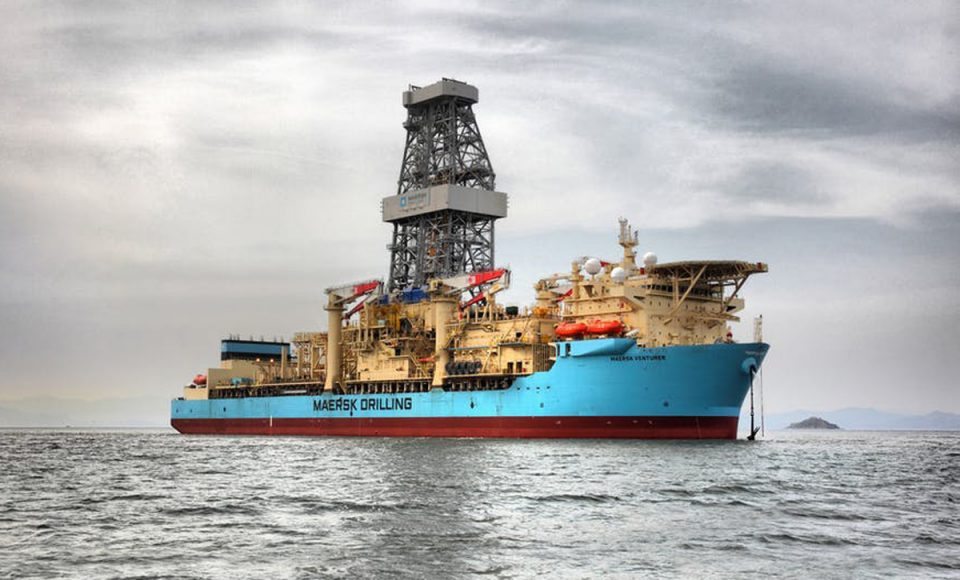*Chevron shops for company to support Agbami survey
The Petroleum Industry Act (PIA), which came into force recently seems to have begun to yield fruitful results as the Anglo-Dutch oil giant – Shell, has raised hope of awarding contracts for the development of its Bonga South West/Aparo deepwater project, among others next month, which may require multiple offshore vessels.
Similarly, Chevron Nigeria Limited (CNL) will also be looking for company to support Agbami survey. The company will assist in seismic-related work on its deepwater Agbami project.
According to Upstreamonline.com, Shell in the coming months is set to award a significant contract in Nigeria that could involve the supply of up to 14 offshore vessels chartered on a firm and call-off basis.
Meanwhile, Upstreamonline.com also reported that Chevron Nigeria Limited aims to place an order for seismic-related work on its deep-water Agbami project offshore Nigeria.
Anglo-Dutch giant Shell’s focus in Nigeria is on its offshore fields such as EA and Bonga as well as new schemes such as HI and HA in shallow water and Bonga South West/Aparo in deep water, it added.
The vessel prequalification exercise was kicked off by Shell Petroleum Development Company (SPDC), which wants to use them for shallow-water assets in its east and west divisions and also on Bonga.
The proposed contract is due to start in the second quarter of 2022 and run for five years with an option to extend by a further two years.
Shell has split the workscope into two and needs to receive prequalification documents by 25 October.
For the shallow-water operations, an anchor handling vessel, with an 85 to 100 tonne bollard pull, is required for 24-hour operations.
Shell will only consider vessels up to five years old and with a minimum deck area of 200 square metres.
A number of other vessels are also needed to be accessed on a call-off basis.
These include an extra anchor handling vessel, a platform supply vessel, a fast support intervention vessel, a personnel carrier, a dive support vessel and an accommodation vessel/flotel with walk-to work (W2W) capability.
In this scenario, W2W means workers can walk between the flotel and the platforms of floating production, storage and offloading vessels by means of a gangway or a temporary bridge.
Specialist marine services will also be needed on a call-off basis (related to — for instance — autonomous underwater vehicles) as well as the provision of marine personnel.
Shell’s requirements at Bonga are exactly the same as for its shallow-water assets, which means up to 14 vessels may be required in total over the contract lifetimes.
Elsewhere, Chevron’s requirement covers quality assurance and quality control services for ocean bottom node (OBN) seismic surveys over its Agbami oilfield.
Data from these surveys will underpin the US supermajor’s 2021-2023 drilling and completion programme at the field.
The contract is set to run for two years with “a possible” one-year extension option, Chevron documentation said.
Prequalification forms need to be submitted by interested parties by 5 November.
Essentially, the successful contractor must provide onboard QA/QC services during the acquisition of OBN 4D seismic data in the first half of 2022 with the operation expected to last for 40 to 70 days.
In February, 2019, Shell Nigeria Exploration and Production Company (SNEPCo) announced the release of Invitation to Tender (ITT) to contractors for the development of the Bonga South West Aparo (BSWA) oil field.
The project’s initial phase includes a new Floating, Production, Storage and Offloading (FPSO) vessel, more than 20 deep-water wells and related subsea infrastructure. The field lies across Oil Mining Leases 118, 132 and 140, about 15km southwest of the existing Bonga Main FPSO.
The ITT is for engineering, procurement and construction contracts for the 150,000 barrels per day project in the Gulf of Guinea.
“This is a new vista for deep offshore oil and gas exploration in Nigeria based on a revised commercial framework embraced by government and the project investors,” SNEPCo’s former Managing Director, Bayo Ojulari, said after the execution of the Heads of Terms by the Nigeria National Petroleum Corporation (NNPC), SNEPCo and its Unit partners, revising the terms of the OML 118 Production Sharing Contract.
Ojulari said: “SNEPCo has concluded OML 118 negotiations with the NNPC. We now have a clear commercial framework, supported by the government and project investors, toward a potential Bonga South West Aparo Final Investment Decision (FID).”
Ojulari described the conclusion of the commercial framework as a key milestone for the project and the development of Nigeria’s deep-water oil and gas industry. “The new framework marks the start of the second generation of deep-offshore exploration and development, not just for SNEPCo but for all players in Nigeria’s deep water. This is a model that we see being replicated in the industry to further unleash Nigeria’s potential in deep-water exploration.”
The project estimated at a cost of $10 billion was delayed by COVID-19 pandemic and non-passage of the Petroleum Industry Bill (PIB), but the coast is clear now.




